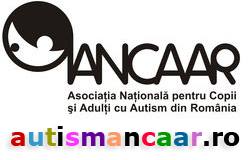Specialized training program for Recovery Teachers working with persons with Autism Spectrum Disorders (ASD)
The object of the case study is a particular educational program run by an NGO. The Romanian National Association for Children and Adults Suffering from Autism Spectrum Disorder (RO: Asociatia Nationala pentru Copii si Adulti cu AUTISM din Romania – ACNAAR) is one of the oldest and most visible associations in Romania that promotes the rights, interests and needs of individuals with Autism Spectrum Disorders (ASD), being established in 1991, two years after the fall of communism.  The association is pursuing consulting, individual development and family support interventions, education and integration programs to promote with dignity the rights of persons with autism. A privileged direction of action consists in training recovery teachers for persons with Autism Spectrum Disorders. To this end, ANCAAR organizes the Recovery Teacher Training Program, a profession recognized by the Classification of Occupations in Romania System, (COR 235 205) and authorized by the National Qualifications Authority (ANC). Although the profession is broadly defined, covering any form of assistance in therapy, intervention or just personal assistance for certain categories of disabled persons, the training program addresses the specific needs of persons with Autism Spectrum Disorders. The program has an applied and interdisciplinary character, bringing together, as trainers, psychopedagogists and educational counselors, psychologists and psychiatrists. The program curricula includes 60 training hours, divided into 20 hours of theoretical training and 40 hours of practice, with the following modules:
The association is pursuing consulting, individual development and family support interventions, education and integration programs to promote with dignity the rights of persons with autism. A privileged direction of action consists in training recovery teachers for persons with Autism Spectrum Disorders. To this end, ANCAAR organizes the Recovery Teacher Training Program, a profession recognized by the Classification of Occupations in Romania System, (COR 235 205) and authorized by the National Qualifications Authority (ANC). Although the profession is broadly defined, covering any form of assistance in therapy, intervention or just personal assistance for certain categories of disabled persons, the training program addresses the specific needs of persons with Autism Spectrum Disorders. The program has an applied and interdisciplinary character, bringing together, as trainers, psychopedagogists and educational counselors, psychologists and psychiatrists. The program curricula includes 60 training hours, divided into 20 hours of theoretical training and 40 hours of practice, with the following modules:
- Introduction into the Autism Spectrum Disorders
- Diagnosis in ASD
- Evaluation of ASD individual
- Establishing a personalized intervention plan
- Case management
- Pre-therapy
- Behavioral theory
- Management of undesirable behaviors
- Applied Behavioral Analysis (ABA)
- Alternative communication system- PECS
- TEACCH approach
- Give me 5 method
- Play therapy
- Coaching for individualized-study case
- Speech and language intervention
- I am Special method
- Denver method
- Community integration
- Control of sexual manifestations of the person with ASD
- Occupational therapy
- Support group. Its role for caregivers of persons with ASD.
The case stands out through the particular issue that it addresses and the flexibility through which it can address it effectively. According to some NGO’s estimates, around 8.000 children in Romania are suffering from ASD and are in the situation of requiring specialized, personal care. And its not only the personal working in education (either mainstream or special schools) that require special training as Recovery teacher, but also members of the families. The occupational standard of Recovery Teacher ensures any form of assistance in therapy, intervention or just personal assistance for certain categories of disabled persons. Adapting it to the specifics of ASD and providing specialized programs is a way of addressing this significant issue.
With a frequency of approximately 5 courses per year, in the last five years ANCAAR instructed more than 500 persons in the profession of Recovery Teacher, with a special focus on ASD. The structure and the modular organisation of the course allows for flexibility in scheduling it and also for the possibility to be organized in regional centers. The possibility to run the program in different cities means a broader reach in addressing this need. By promoting the course and its outcomes, ANCAAR provided not only qualified personnel, but also proved to the families of children with ASD that there is a network of specialized support for their situation.
The program was developed with substantial involvement of a wide range of stakeholders (Ministry of Health, Ministry of Labour and Social Welfare, Department of Psychology of University Spiru Haret, professional associations and therapeutic associations of carers, the National Qualifications Authority) and was based on the department’s research and teaching tradition. The flexible and autonomous implementation of the training programs in response to the specific needs for skills development is symptomatic for how the confidence of the professional higher education institutions can be increased.

